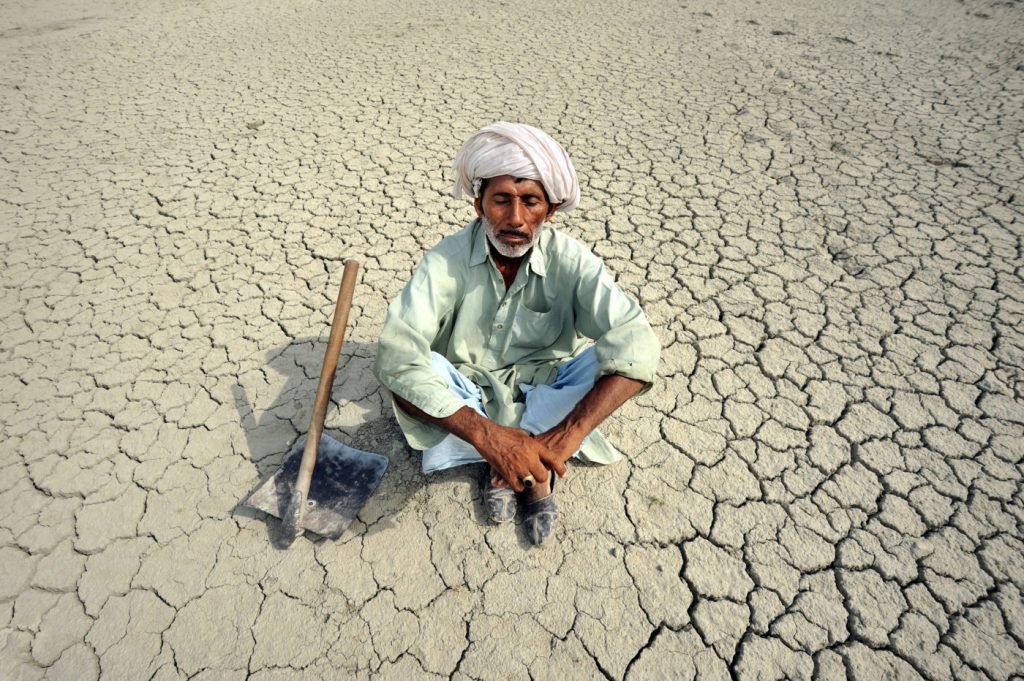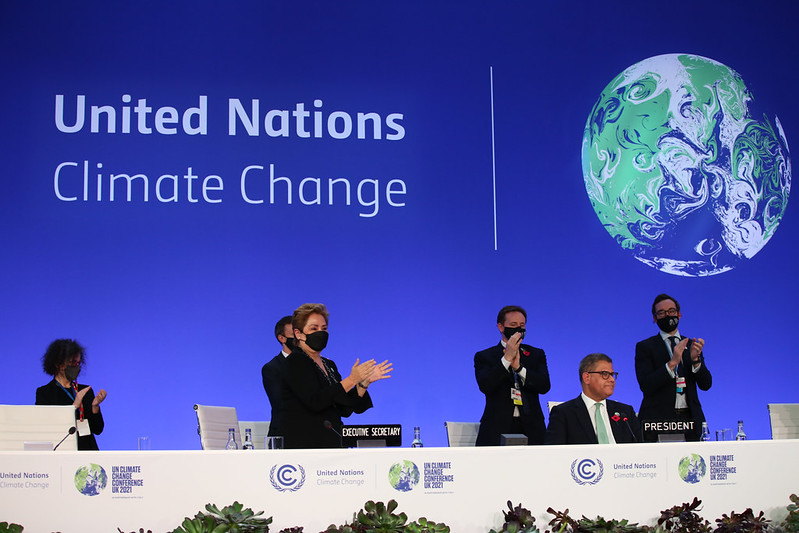
By Anders Lorenzen
As we are in the early days of 2022, I could again write that 2021 was the year climate change went mainstream. But I could probably write that again in a year`s time and the year after that and so on. We don’t have to go very far back to find when the issue was a niche, and it is only going to become more mainstream as the urgency of tackling the climate crisis continues to materialise. But nevertheless, it is evident that something did change in 2021…
The momentum of COP26 coupled with a series of stark IPCC climate reports, increased urgency from the UN and governments, caused it to become a mainstream issue across newsrooms. In addition, across the world, climate-fuelled events of extreme weather continued to cause havoc and many more people were willing to point to the link to climate change.
Not least in Germany where unprecedented flooding claimed the lives of at least 200 people, which caused the German general election to be branded a climate election. Even though the outgoing Merkel government and the incoming Olaf Scholz government said the country needed to do more to tackle climate change there was no change in the country’s energy policy. This involved continuing to decommission its last six nuclear power plants, even though a reversal would at least preserve some low-carbon electricity capacity.

All change in the White House
Elsewhere with the incoming Biden Administration, there was a significant change in US climate policy with the administration waving goodbye to the Trump Administration`s policy of climate denial, misinformation and delay. The president immediately re-joined the Paris Agreement and on day one in office Biden, wanting to show he meant business, signed executive orders related to climate including the controversial Keystone XL pipeline.
But one of the president’s flagship climate spending and infrastructure bills, Build Back Better, met opposition from one in his own party, the conservative-minded senator Joe Manchin who is standing up for the coal industry in his state. The bill was initially watered down before being completely killed off. On energy policy even as the president succeeded in significant progress on offshore wind, he also approved several new oil drilling licenses angering climate activists.

Another year of extremes
As 2021 was very much dominated by extreme weather events across the globe, we continued to see temperature records broken and we had another all-time high-temperature record set in the Death Valley in the US at 54.4 C. Hardly any place on Earth was safe from climate-fuelled extreme weather in 2021. From droughts and floods in Turkey to heatwaves and wildfires in the US, Canada and the Mediterranean, to floods and landslides in Japan and fatal torrential rains in Malaysia to mention just a few.
Then there was this year’s blockbuster climate event – COP26. Ahead of the crucial UN climate summit, the mood was sombre about whether an agreement was to be reached as the ambitious target of 1.5 degrees C quickly became unreachable when countries pledged well below what was required.

There was some progress reached on ending deforestation and phasing out coal before, as in true COP tradition in the 11th hour and, a deal was struck. As COP President Alok Sharma struck the iconic hammer he struggled to hold back his tears. He was also quick to admit even though a deal was struck, it was a deal on life support as the 1.5 degrees C target is only barely kept alive. It was another disappointing climate summit for the developing countries at the forefront of the battle against climate change as the climate finance for the Green Climate Fund promised by rich countries at COP21 in Paris in 2015 are still to emerge.
In 2021 fossil fuels came under more sustained pressure, largely helped by Joe Biden taking office and sweeping through his climate agenda, net-zero strategies and the ramping up of ambition ahead of COP26. This naturally benefitted renewables, but also green hydrogen and the world’s first plant to directly capture CO2 from the air opened in Iceland, and the urgent need for carbon capture and storage (CCS) technology to be installed to meet climate goals continued to grow in prominence. Similarly, renewed interest in nuclear energy continued with the pro-nuclear argument re-asserting itself and growing in relevance in many countries and in the last hours of 2021 the European Union (EU) announced plans to classify it as a green energy source.
Categories: climate change, energy, year in review
wow🎄 hoped to live in an adaptive foilage, fungi biotecture my entire life🎄🎄🎋ideas like these have been elaborated on before by authors. working on an associated botany based anthropological story, looking to collaborate… if intrigued please type text messages to 🎄 951 723 7035 🎄 🌴🌲🌲🌲 grass, hedge, tree, grotto, grove, orchard, 🎄 fruit garden aspirations…🎄 looking for google chats and maps with botany based hiveminds for drinks and awesome fun🎄🎄🎄🌵🍆🎄🎋🏕️🌎🌍🌏🌴🎄🎄🎄🎄🎄🎄🎄🎄🎄🎄🎄🎄🎄🎄🎄… 🙂
LikeLiked by 1 person